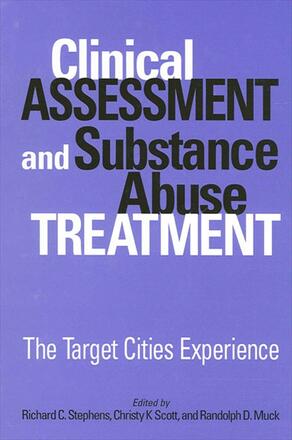
Clinical Assessment and Substance Abuse Treatment
The Target Cities Experience
Alternative formats available from:
Evaluates drug and alcohol abuse treatment systems and their effects on individual alcohol and drug abusers.
Description
During the 1990s, in response to the multi-faceted phenomenon of substance abuse, the federal government's Center for Substance Abuse Treatment funded the Target Cities project in nineteen U. S. cities. This volume evaluates how the Target Cities project affected both treatment systems and individuals with drug and alcohol problems. In each city, programs were established to evaluate the impact of these substances on an individual's mental and physical health, housing, family relationships, and involvement with the criminal justice system. A brief summary of the evolution of national perceptions of drug and alcohol problems is followed by a description of the project, its participants, the process of entering treatment, an organizational analysis of the project's many components, participant satisfaction and adjustment, and the implications of the research findings for policy makers and treatment personnel.
Richard C. Stephens is Director of the Institute for Health and Social Policy and Professor of Sociology at the University of Akron. He is the author of The Street Addict Role: A Theory of Heroin Addiction, also published by SUNY Press, and Mind-Altering Drugs: Use, Abuse and Treatment. Christy K Scott is Regional Manager of Chestnut Health Systems at the Lighthouse Institute in Chicago, Illinois. Randolph D. Muck is Team Leader at the U. S. Department of Health and Human Services, Substance Abuse and Mental Health Services Administration, Center for Substance Abuse Treatment, Systems Development and Integration Branch in Rockville, Maryland.
Reviews
"Stephens, Scott and Muck have set a high standard of excellence in describing the evaluation of efforts to re-engineer complex health and human service systems. This is a 'must read' for planners, policy makers, evaluators, and treatment program administrators looking for ways to improve the quality of addiction treatment in urban communities. " — Evaluation and Program Planning
"What I like most about the book is that it provides the drug field with some useful outcome data on a very large—and expensive—government initiative. We don't see many comprehensive evaluations like this. It makes a nice contribution to the literature. " — James A. Inciardi, author of The War on Drugs III: The Continuing Saga of the Mysteries and Miseries of Intoxication, Addiction, Crime, and Public Policy